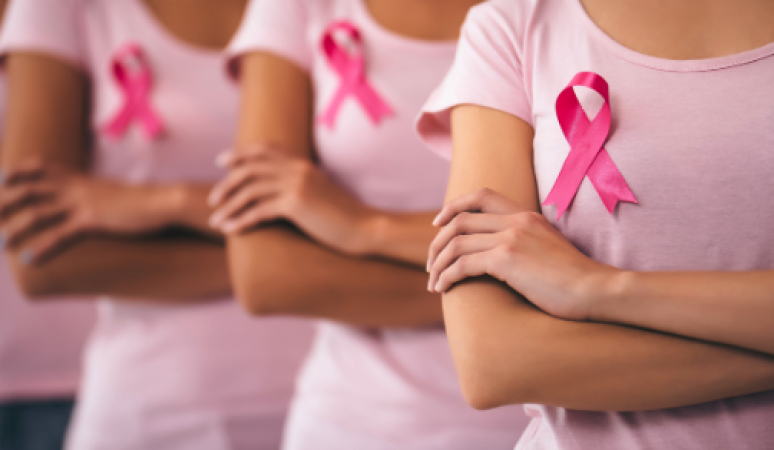
Breast cancer is the most diagnosed cancer among women worldwide, accounting for 1 in 4 cases. It is the most frequent cancer amongst both sexes and is the leading cause of death from cancer in women.
Breast cancers can start from different parts of the breast. The breast is an organ that sits on top of the upper ribs and chest muscles. There is a left and right breast and each one has mainly glands, ducts, and fatty tissue. In women, the breast makes and delivers milk to feed newborns and infants. The amount of fatty tissue in the breast determines the size of each breast.
Survival rates for breast cancer are very high when the cancer is detected early. Unfortunately, 50 to 80% of breast cancer cases are diagnosed at an advanced stage. As per a report breast cancer can only diagnose when it is detected on time. Therefore early detection is very important in order to save your life but before detecting it awareness about breast cancer symptoms is a must. Following are the common symptoms of Breast Cancer.
How to detect these symptoms.
Breast Self-Awareness: It is important to check yourself regularly so that you can spot any change immediately. Remember to check all parts of your breasts, armpits and up to your collarbone. Check once a month, one week after your period, after age 20.
Clinical Breast Exam: If you find any lump or any other breast cancer then go for a clinical breast examination. It is an examination by a doctor or nurse who will check both breasts and the lymph nodes in the armpits. Recommended every 3 years between 20 & 30 and every year after 40.
Your life is very important not only for you but also for your family members and therefore self-care is very important.
Easy way to limit the effect of screen time on your eyes